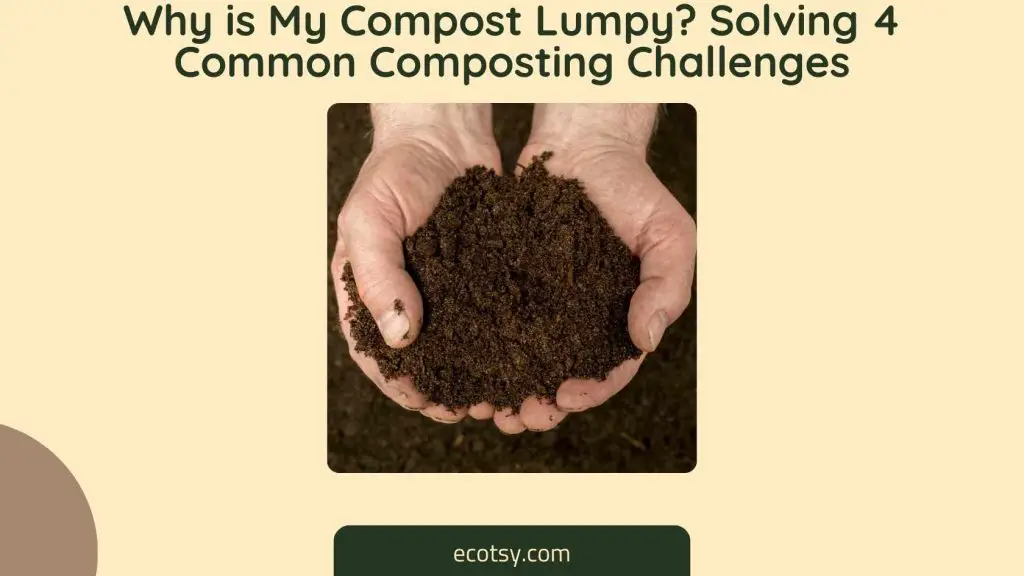Exploring the sustainability of everyday items like wooden spoons reveals much about our environmental impact. This article delves into whether wooden spoons are compostable, recyclable, and biodegradable, and examines their effects on soil health and our broader responsibility towards waste reduction. By understanding these aspects, we can make more eco-conscious decisions in our daily lives.
Are Wooden Spoons Compostable?
Yes, wooden spoons are compostable. When you toss them into a compost bin, they break down over time because they’re made from natural materials. This process isn’t instant; it takes a while for wood to decompose, especially if the spoons are thick or treated with any kind of protective coating. To speed up decomposition, breaking the spoons into smaller pieces before composting can help. Remember, the presence of paint or varnish can affect compostability, so it’s wise to check if your spoons have any such treatments before adding them to your compost.
Are Wooden Spoons Recyclable?
No, wooden spoons are not typically recyclable. Unlike paper or cardboard, wooden utensils can’t go into your recycling bin because most recycling facilities aren’t equipped to process this type of wood. The spoons are too small and can get mixed with other materials, making them difficult to sort. Plus, if they’re coated or painted, they could contaminate the recycling process. Instead of recycling, consider reusing wooden spoons or repurposing them for crafts or garden markers as a more eco-friendly option.
Are Wooden Spoons Biodegradable?
Yes, wooden spoons are biodegradable. Since they are made from natural wood, they break down into the environment over time. This process is facilitated by microorganisms and natural elements like water and sunlight. Biodegradation is nature’s way of recycling, turning the wood back into nutrients that can enrich the soil. But, the rate at which a wooden spoon degrades can vary based on factors like the type of wood, exposure to the elements, and whether it has been treated with chemicals or coatings that might slow down the process.
Composting Wooden Spoons: The Process
Composting wooden spoons is an eco-friendly way to dispose of them. Understanding the process helps in making the most out of this disposal method.
Factors Affecting Compostability
The compostability of wooden spoons depends on various factors such as the type of wood, size, and any coatings or treatments. Natural, untreated wood breaks down faster in a compost pile. In contrast, spoons treated with chemicals or varnishes take longer to decompose. It’s crucial to chop or break the spoons into smaller pieces to speed up the decomposition process.
Enhancing the Composting Process
To improve the compostability of wooden spoons, maintaining a balanced compost pile is essential. This balance involves the right mix of greens (nitrogen-rich materials) and browns (carbon-rich materials). Adding wooden spoons increases the browns, so it’s vital to balance them with enough greens to maintain compost health. Regularly turning the compost pile also aids in faster decomposition.
Recycling Challenges for Wooden Spoons
Wooden spoons typically cannot be recycled through conventional recycling systems. Understanding why can guide proper disposal.
Why Wooden Spoons Aren’t Recyclable
The main reason wooden spoons aren’t recyclable is due to the lack of facilities equipped to handle small wooden items. Moreover, spoons often have coatings or treatments that can contaminate the recycling process. This limitation highlights the importance of exploring alternative disposal methods.
Alternative Disposal Methods
Since recycling isn’t a viable option, consider repurposing or reusing wooden spoons. They can be turned into garden markers, craft materials, or even used in art projects. Finding creative ways to reuse wooden utensils can reduce waste and extend the life of the spoons.
Biodegradability of Wooden Spoons
Wooden spoons are inherently biodegradable due to their natural composition. This characteristic offers an environmentally friendly end-of-life option for these utensils.
Natural Decomposition
Biodegradability means that wooden spoons will break down into natural elements over time, thanks to bacteria, fungi, and other decomposing agents. The time it takes for a spoon to fully decompose can vary, influenced by factors like the wood type and environmental conditions.
Environmental Impact
The biodegradation of wooden spoons contributes positively to the environment by reducing waste and returning nutrients to the soil. However, it’s important to consider that the rate of decomposition can be slow, and placing too many wooden items in one area can temporarily impact the soil composition.
The Lifecycle of a Wooden Spoon
Understanding the full lifecycle of a wooden spoon can inform better purchasing and disposal decisions.
From Creation to Disposal
The journey of a wooden spoon from its creation to disposal involves numerous steps. Initially sourced from trees, the wood is shaped, treated (possibly), and used. At the end of its life, the spoon can be composted, biodegraded, or repurposed, each step impacting the environment differently.
Making Sustainable Choices
Choosing wooden spoons made from sustainably sourced wood and avoiding those with harmful coatings can enhance their eco-friendliness. By considering the spoon’s entire lifecycle, consumers can make informed decisions that align with sustainability goals, reducing their environmental footprint.
Impact on Soil Health
The addition of wooden spoons to compost or soil has implications for soil health. It’s important to understand these effects to maintain a healthy garden ecosystem.
Nutrient Contribution to Soil
When wooden spoons decompose, they contribute to the soil’s nutrient content. As the wood breaks down, it releases carbon, an essential element for plant growth. However, the decomposition process can temporarily tie up nitrogen in the soil, making it less available to plants.
Considerations for Gardeners
Gardeners should be mindful of how much wood they add to their compost or directly into the soil. Too much can alter the soil’s nutrient balance. It’s recommended to mix wooden items with other compost materials to maintain a balanced nutrient profile in the garden.
Community and Environmental Responsibility
The disposal of wooden spoons ties into broader themes of community and environmental responsibility. Making conscious choices reflects on our commitment to sustainability.
Encouraging Sustainable Practices
By choosing compostable, biodegradable, or repurposable items like wooden spoons, we support sustainable practices. This choice sends a message to manufacturers about consumer preferences, potentially influencing more eco-friendly production methods.
Collective Impact on Waste Reduction
When communities prioritize the proper disposal of items like wooden spoons, the collective impact on waste reduction can be significant. Reducing landfill waste contributes to less environmental pollution and a healthier planet.

FAQs
Can wooden spoons be used in vermicomposting?
Yes, wooden spoons can be used in vermicomposting, but they decompose slowly. Vermicomposting is a process that uses worms to break down organic matter, including wood. However, because wooden spoons break down slower than food scraps and other organic materials, they might not be fully decomposed by the time the compost is ready to use.
Are wooden spoons safe for all types of cooking?
Wooden spoons are generally safe for most types of cooking, especially when used in non-reactive cookware. They are not recommended for high-temperature cooking or use in microwaves because they can burn or crack. Always ensure the wooden spoon is not coated with any substance that could release harmful chemicals when heated.
How can I tell if my wooden spoon is treated with chemicals?
To determine if a wooden spoon is treated with chemicals, look for any labeling or manufacturer information that specifies the treatment. If the spoon has a shiny or glossy finish, it might be coated. If you’re unsure, contacting the manufacturer or opting for untreated, natural wooden spoons is the safest choice.
Do wooden spoons last longer than plastic ones?
Wooden spoons can last longer than plastic ones if they are properly cared for. They don’t melt or release potentially harmful chemicals when exposed to high heat. However, they need to be regularly maintained, dried properly after washing, and oiled occasionally to prevent cracking and splitting.
How can I dispose of a broken wooden spoon?
If a wooden spoon breaks, it can be composted if you have a home compost system, used as kindling for a fire, or repurposed in creative ways, such as garden markers or craft materials. Disposal methods should prioritize reducing environmental impact.
Are there any food safety concerns with using wooden spoons?
Wooden spoons are generally safe for cooking but can harbor bacteria if not cleaned properly. It’s important to wash them thoroughly with soap and water after each use and allow them to dry completely. Avoid using the same spoon for raw and cooked foods without washing in between.
Can wooden spoons be sanitized in a dishwasher?
It’s not recommended to place wooden spoons in a dishwasher as the intense heat and prolonged exposure to water can cause them to crack, warp, or lose their finish. Handwashing with warm, soapy water and air drying is the best way to clean and maintain them.
Conclusion
Key takeaways include:
- Wooden spoons are compostable, but their decomposition rate varies based on several factors.
- These spoons are typically not recyclable due to the limitations of recycling facilities.
- Wooden spoons are biodegradable, returning valuable nutrients to the soil over time.
- The process of composting wooden spoons can influence soil health, particularly in nutrient balance.
- Making conscious choices about the disposal of wooden spoons can reflect our commitment to environmental sustainability.
- Our collective actions in properly disposing of items like wooden spoons can significantly impact waste reduction efforts.





